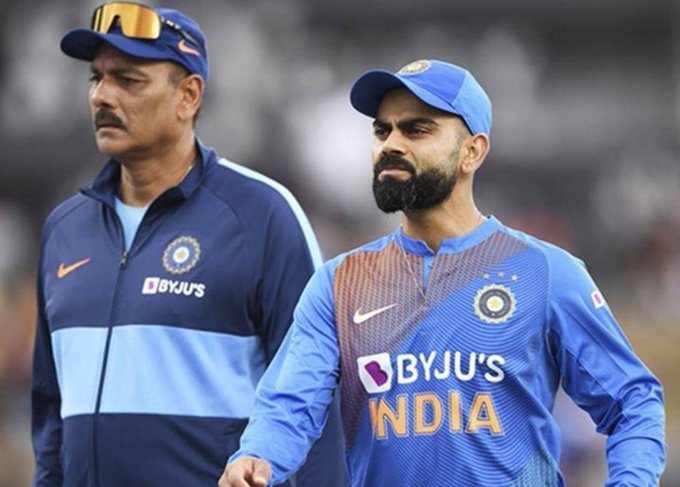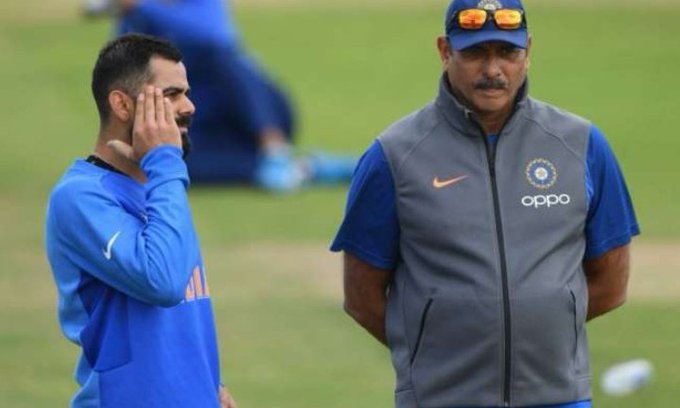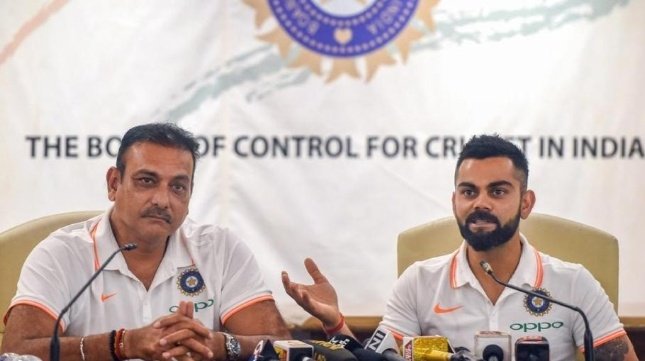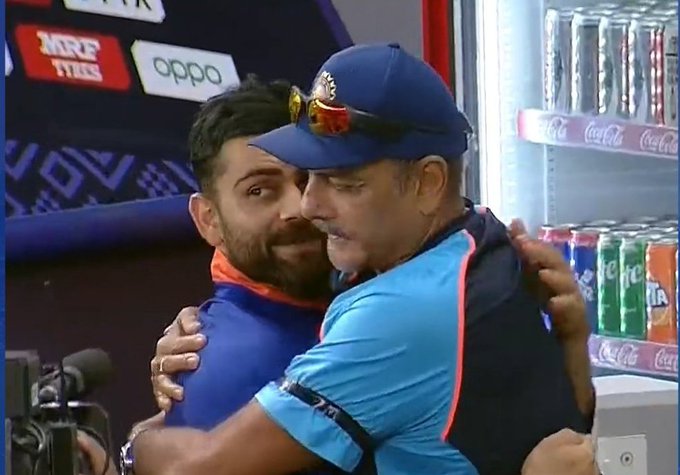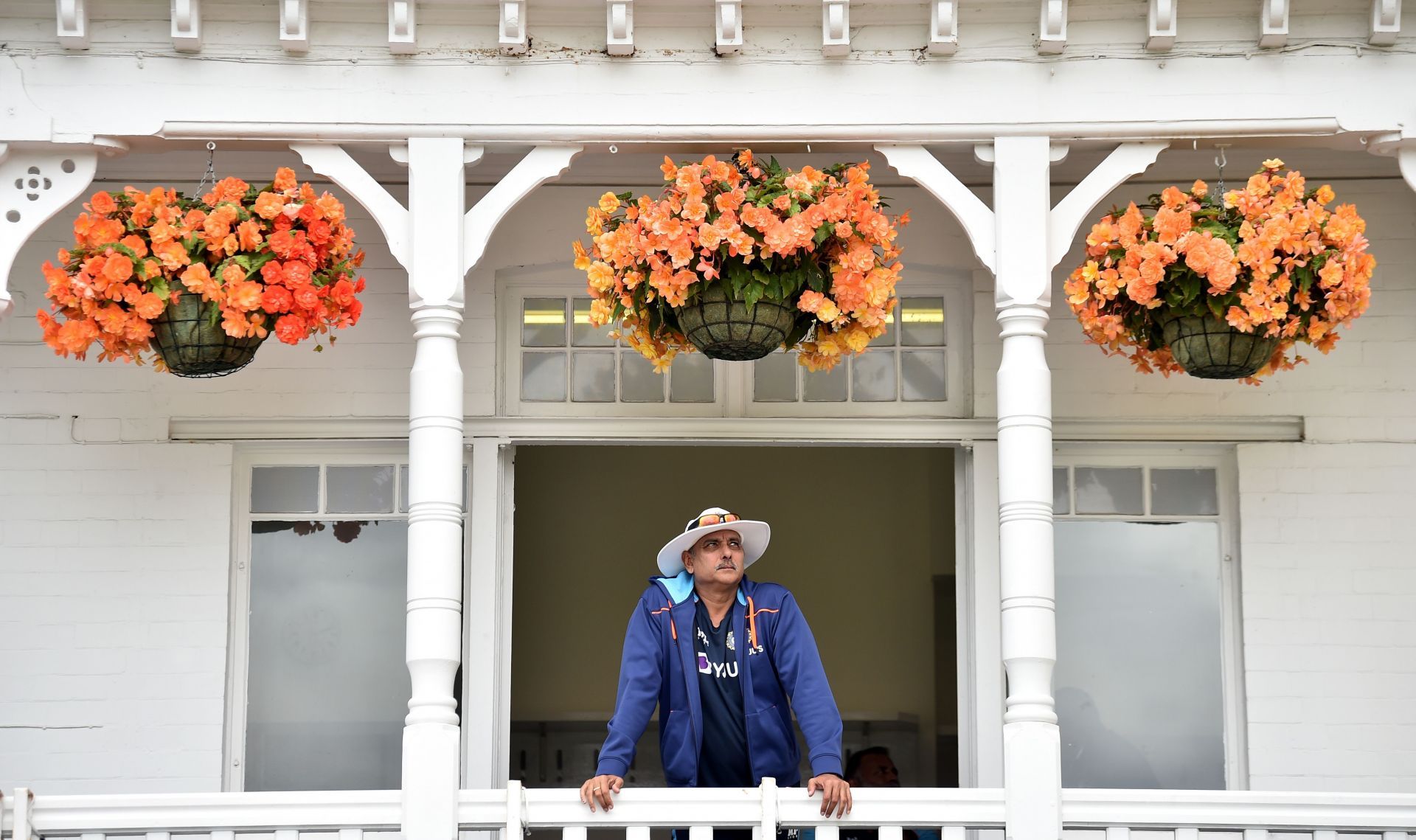
Ravi Shastri as Team India head coach - method behind the madness
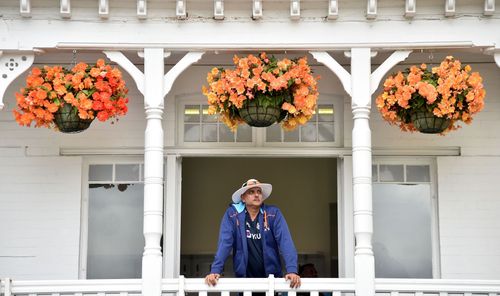
With the last group game of the Super 12 against Namibia in the 2021 ICC T20 WC, India bid farewell to two legacies. One for Virat Kohli as their T20I captain, and another for Ravi Shastri as their head coach.
While Virat Kohli will stick around for longer, both as a batsman and as captain in other formats, this is the end of the road for Mr. Shastri. Seemingly, at least. Because this is his second stint as head coach of the national team. Who knows? Maybe a third in the future? Knock on wood, not too soon.
What began in July 2017 after Anil Kumble's tenure ended has ended in November 2021 and will be succeeded by Rahul Dravid. Sandwiched between the two former cricketing stars of India's journey into coachdom lies Mr. Shastri's days of highs and lows.
India under Ravi Shastri in Tests
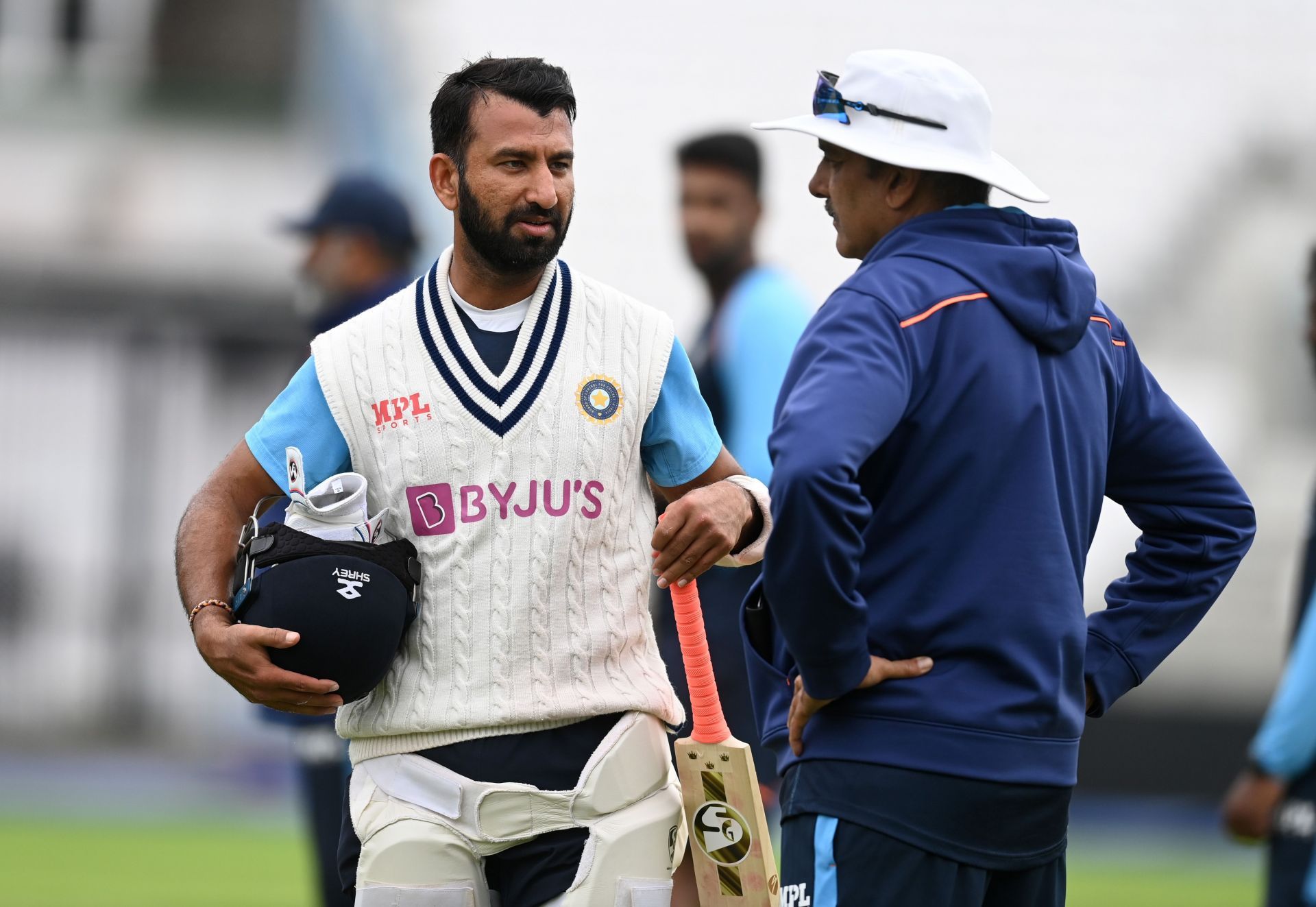
It is under Mr. Shastri that team India really became a powerhouse in Test cricket. Since he took over, India has played 43 test matches, winning 25 and losing 13. That's almost 2 wins for every loss.
In the same time, only New Zealand have a better win to loss ratio (an unbelievable 3.6) among the major test playing nations. Australia has a 1.5 W/L ratio. England has only 1.2.
In the same duration, going by host country, we are seeing a pattern. England has the most wins in England - 17 wins in 32. Next is South Africa in South Africa - 14 wins in 21. Australia in Australia - 13 wins in 20. New Zealand in New Zealand - 13 wins in 16. Then comes India in India. With 12 wins in 15 games.
So the hosts win a lot in their own country. What's surprising about that? Look at the losses: England lost 10 in England. South Africa and Australia lost 7 and 4 respectively. New Zealand (again, annoying how good they are) did not lose any and India lost only one.
And those 4 matches Australia lost in Australia? All of them came against India. In 4 years, India have been the only team to beat Australia in their own backyard. Not their arch-rivals England. Not their neighbors New Zealand.
In England, India won 3 and lost 6. But that includes the last series, which counts as a series win for India. Only South Africa and New Zealand remain unconquered - with all 3 games against New Zealand in this period resulting in losses.
15 series played. 11 won. Bar the England tour in 2018 that India lost 1-4, the 1-2 loss away in South Africa, the 0-2 loss away in New Zealand and the WTC final loss against New Zealand in England.
If these are the kind of results that get labeled as bad, all it means is that the team is so ridiculously good that the expectations have been set sky-high. That was India under Ravi Shastri, really.
And in this period, India were the No.1 team in ICC rankings for 37 months.
India under Ravi Shastri in ODIs
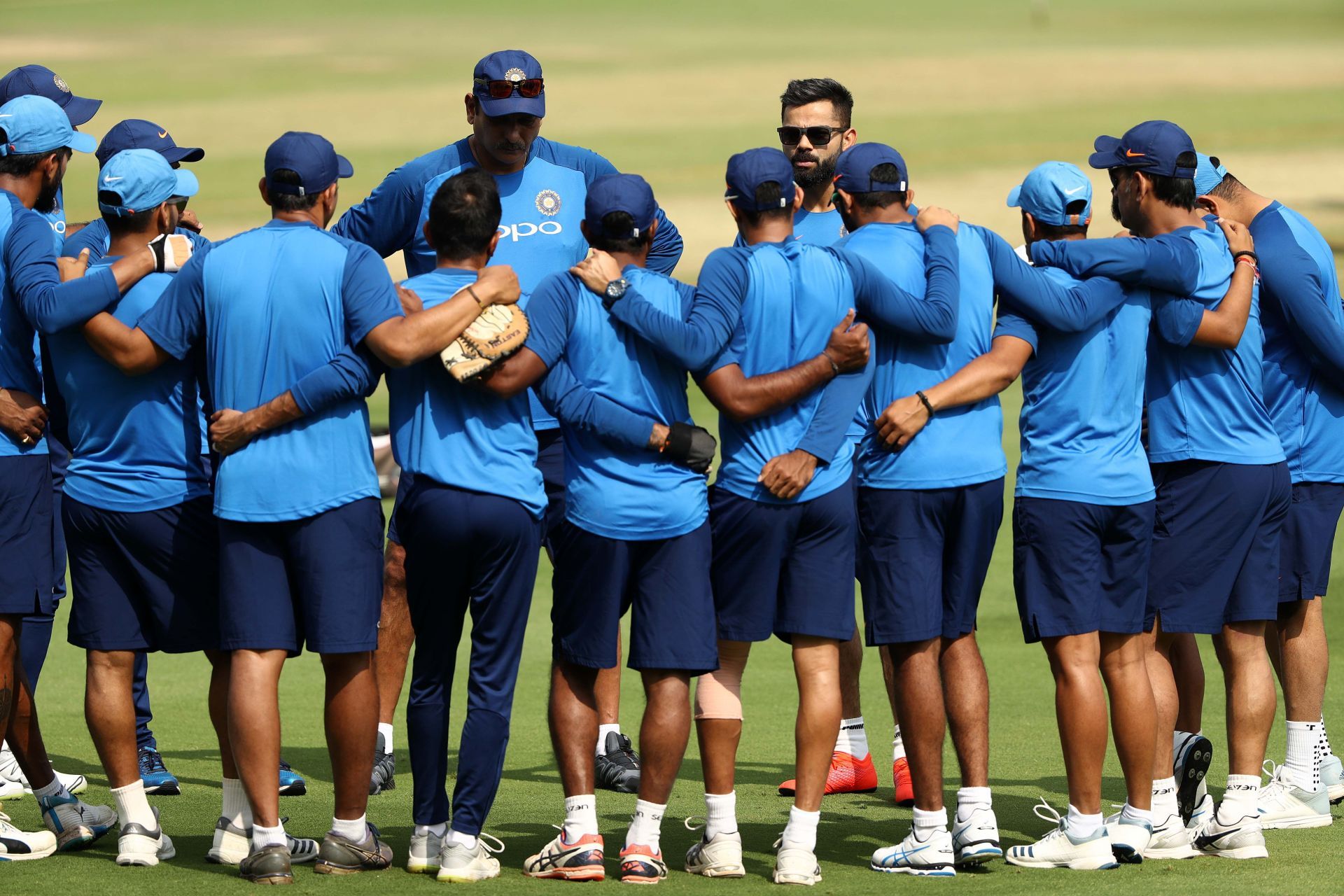
The record is even better in One Day Internationals, where India have won 54 games out of 81. The W/L ratio is a staggering 2.25. The only team who have done better? The current ODI world champions, England
They have played 12 games fewer than India. In fact, no other team has played as many 50-over games as India have.
Out of 21 series India have played, they have lost only 5. The 2019 Cricket World Cup where they reached the semis. The 2018 away series in England. Two against Australia - one at home just before the 2019 CWC and one away from home. The 2020 away series in New Zealand.
In this span, India has a positive record against every single opposition except England - against whom they have lost 4 and won only 3. The record against New Zealand is tied at 6 apiece.
Once again, this is a phenomenal showing for any team. If the only depressing thing about your record is a mere semi-final appearance in the cricket World Cup, you are doing exceptionally well by all metrics.
And India were the No.1 side in ODIs for 4 months under him.
India under Ravi Shastri in T20s
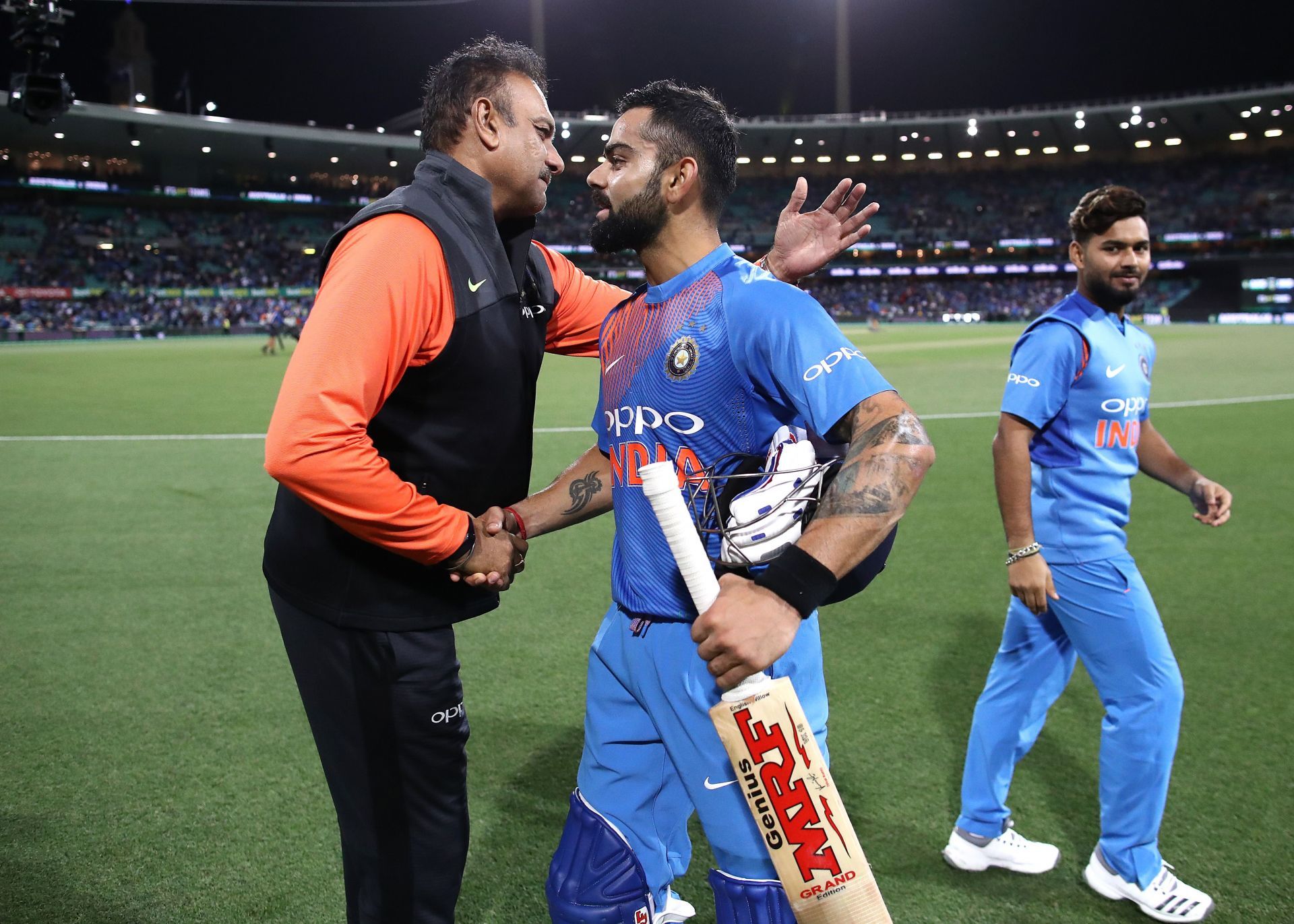
The T20 record against Shastri is much the same as the other two, with an outstanding Win-Loss ratio of 2.095. India have played 69 matches in this duration, winning 44 of them.
This time around, only Pakistan has a better ratio, with theirs being 2.315. They have played one fewer match than India and winning the exact same 44 games. Both India and Pakistan share the most wins by any team in this span.
Out of the 23 series in which the team has competed, India have won 15 and drawn 3. The only losses have been this 2021 ICC T20 World Cup, the last tour of Sri Lanka, the home loss against Australia in 2019, the whitewash in every format in the tour of New Zealand, and the one-off game against West Indies in 2017.
And here, India has a positive result against every opponent except for New Zealand - who they have faced 10 times and won only 4. The other exception is Pakistan, who they have faced only once in this time - and lost.
Unlucky really how they were the opponents India had to face in the Super 12 stage and win against.
The verdict
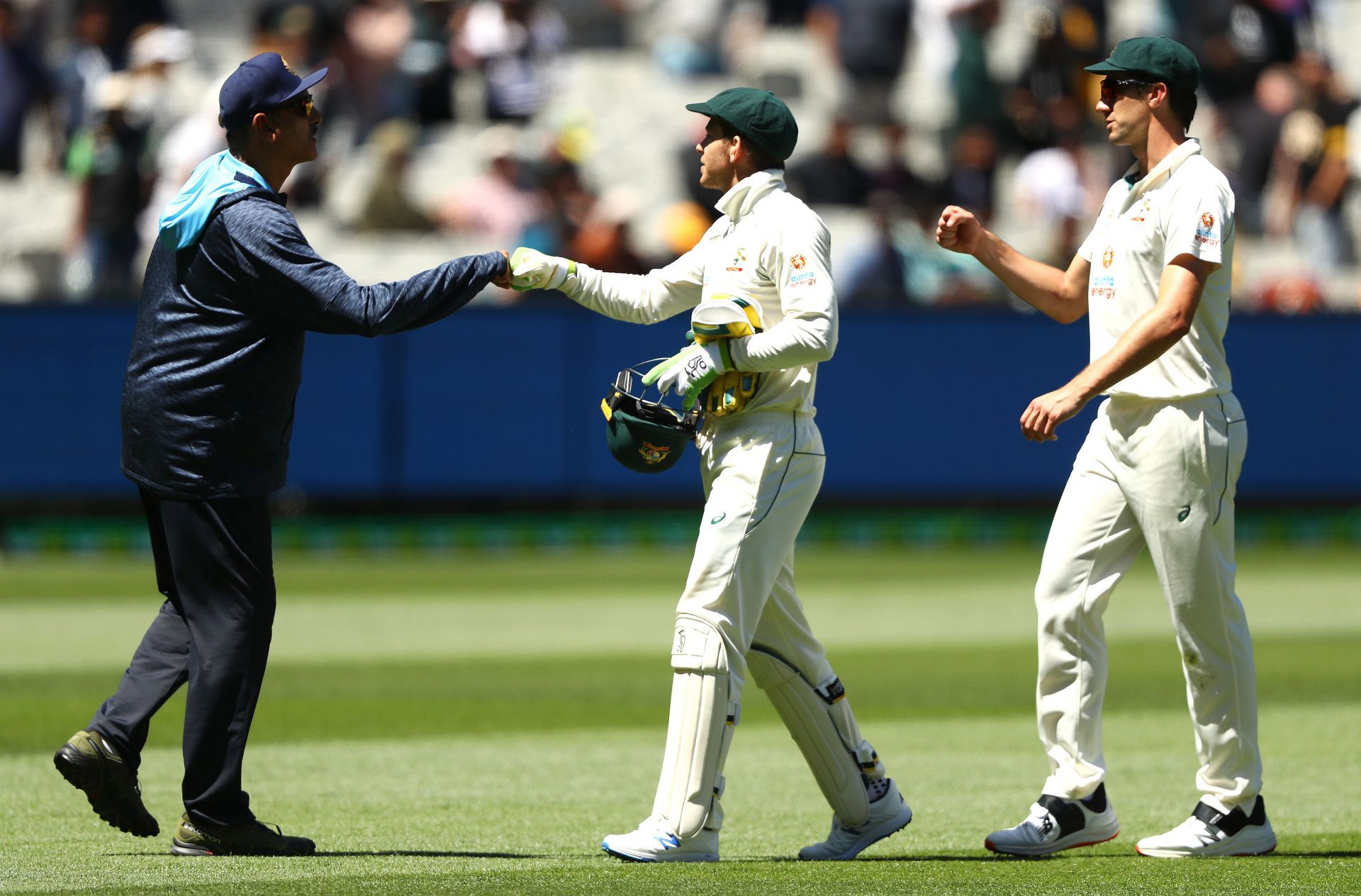
In popular culture, it has become common to portray Ravi Shastri as someone who doesn't do much when India loses and portray their wins as something that happened despite him.
And while it's all fun and makes for solid meme material, one has to wonder how much arm-chair experts really know. How can someone stay as the coach for 4 years without doing anything, as people think of him, and still deliver such strong results?
As Ashwin explained when talking about the India tour of Australia, Ravi Shastri has an impeccable mind for the game and is a master at establishing strategies:
"After we lost the toss, Shastri came to me and went "ashhhh". I was wearing my pant and suddenly taken aback! I said yes Ravi bhai. He roared in typical style 'get the ball in the first 10 overs'. "I was like get the ball in the first 10 overs in Melbourne? He said "I've told Jinx, it's damp and might spin'. As he said, I got the ball early... and the ball spun immediately. I was like wow, what's happening!"
We often have a habit of overreacting to bad news, and allow them to wipe away all the good memories preceding them. The lack of ICC titles has made many an Indian fan do the same to Ravi Shastri.
And something tells me, we will miss him once time has tempered the present with nostalgia.
